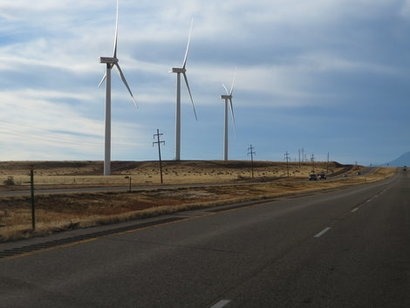
The report, Impacts of Federal Tax Credit Extensions on Renewable Deployment and Power Sector Emissions, details the use of state-of-the-art scenario modelling to explore how renewable energy deployment in the US might change with recent federal tax credit extension and also how this might impact carbon dioxide emissions in the power sector.
Federal tax credits for renewable energy, particularly the wind production tax credit (PTC) and the solar investment tax credit (ITC), have offered financial incentives for renewable energy deployment over the last two decades in the US. In December 2015, both these tax credits were extended by five years from their prior scheduled expiration dates, but will ramp down in tax credit value during the latter years of the five-year period.
The NREL report examines the impacts of the tax credit extensions under two distinct natural gas price futures, as the price of natural gas has been a key factor influencing the economic competitiveness of new renewable energy development. The analysis finds that, in both natural gas price cases, tax credit extensions can spur renewable capacity investments at least through the early 2020s, and can help lower CO2 emissions from the US electricity system.
The tax credit extensions are estimated to drive a net peak increase of 48-53 gigawatts in installed renewable generation capacity in the early 2020s. Longer-term impacts are less certain and can depend on natural gas prices. After the tax credits ramp down, greater renewable energy capacity is driven by a combination of assumed cost reductions in renewable generation, assumed rising fossil fuel prices, and existing clean energy policies.
The tax credit extension-driven acceleration in renewable energy capacity development can reduce fossil fuel-based generation and lower electric sector CO2 emissions. Cumulative emissions reductions over a 15-year period (spanning 2016-2030) as a result of the tax credit extensions are estimated to range from 540 to 1,400 million metric tons CO2.
For additional information:

